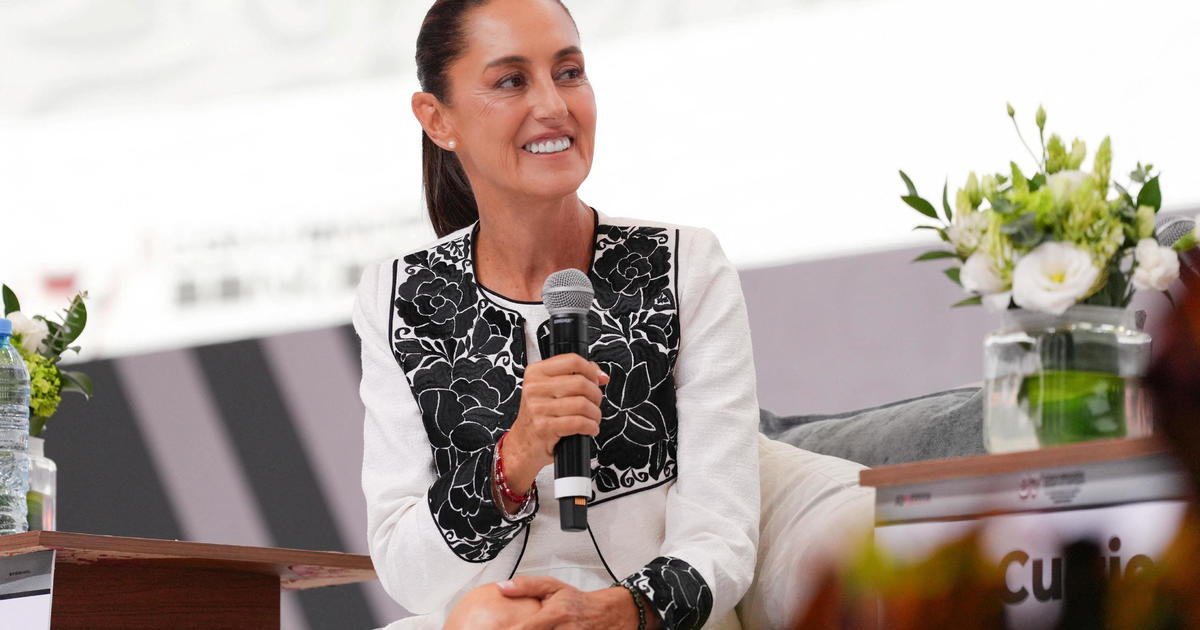Social media is forcing Iran to address the taboo topic of sexual violence
Tehran — Sexual abuse is a taboo topic in Iran. The country's state-run media ignore or actively censor news of rape, harassment or abuse allegations. Few victims choose to come forward in a country where strict Islamic laws require four witnesses to confirm a rape allegation.
With the legal bar set so high, prosecutions are rare and convictions even rarer.
In spite of this stifling atmosphere, technology is giving a voice to victims of sexual harassment and violence. Iranian women and men are sharing their stories on social media. While there's a long way to go, the hashtag "IranianMeToo" has picked up steam on Twitter, reflecting a push for change and a desire to turn the spotlight on serial perpetrators.
Discussion of the case of university art professor Keivan Emamverdi has flooded Iranian Twitter accounts this year. He's been accused by multiple female students of inviting them to his home, then drugging and raping them.
After a number of former students levelled allegations against Emamverdi on social media — using fake names to remain anonymous — Tehran police chief Hossein Rahimi announced Emamverdi's arrest on August 25.
A few days later, the chief confirmed that some victims had come forward to file official rape complaints against Emamverdi once the police assured the women that their identities would be protected.
The police also had to guarantee that the victims themselves would not be prosecuted. This was a real concern as, technically, the women had broken the law by voluntarily going into the home of a man and consuming alcohol (allegedly laced with tranquilizers).
Iranian law bans all alcohol consumption, and women are forbidden from entering the home of a man who is not a close family member without a husband, brother or other male escort. Both crimes can carry a punishment of flogging.
Chief Rahimi later said that an independent police investigation, still under way, had yielded enough evidence to back up the victims' accusations. The police say Emamverdi has now confessed to his crimes and claimed he acted under the influence of "sadism."
"After two years I understand that he had put something in my wine, and many other women, and had raped them," said one of the professor's accusers on Twitter. "That means [Emamverdi] was putting them to sleep and raping them, whether some may have been willing to sleep with him or not."
CBS News reached out to other men and women who have spoken up on social media to describe their own rapes by various attackers. While some confirmed their stories off the record, none were willing to be quoted in case their identities were revealed. They feared they could face retribution from their attackers, or even prosecution by the police.
Iran's government plays down the issue of sexual abuse, and has even denied that it takes place. But in a rare public acknowledgment that sexual crimes exist in the country, Vice President for Women and Family Affairs Masumeh Ebtekar recently offered her support to victims.
Ebtekar promised new legislation to support female victims of sexual violence and abuse. She said she hoped it would be ready for parliament's consideration in less than a month.
The vice president did not mention the case against the art professor specifically, but the timing of her announcement suggests the government is keen to show that it's taking action, or at least listening.
But the Emamverdi case is just the tip of a large and ugly iceberg. Countless sexual abuse crimes go unreported or ignored by the authorities.
With the coronavirus outbreak, a battered economy, simmering social unrest and a geopolitical standoff with the United States, Iran's government has a lot on its plate right now. It has little capacity to tackle the taboo issue of sexual violence, too, but it may have no choice.
The chorus of pain and outrage rising from Iran's thriving social media scene is just too loud.




